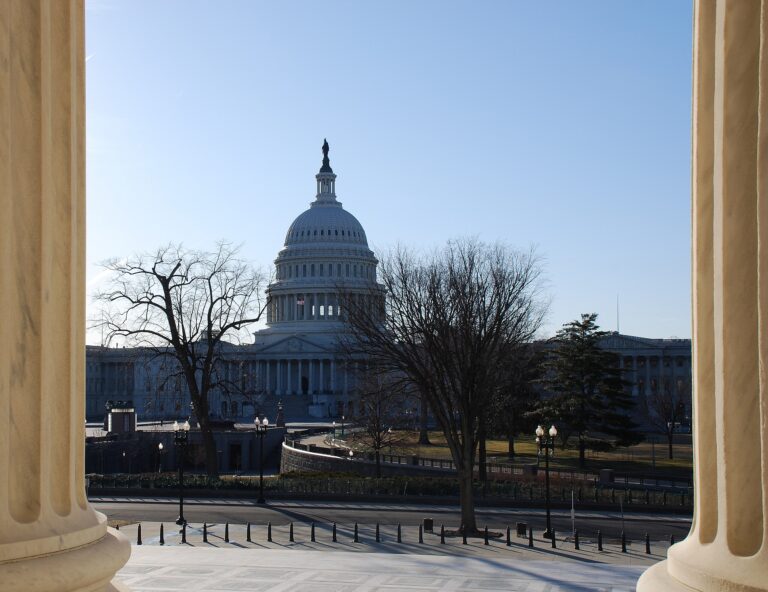
Comparative Answers to Contemporary Challenge of Legal Authoritarianism: The Case of Kuwait
Courtney Freer
North Kuwait City by Francisco Anzolaivi (CC BY-SA 2.0)
Kuwait, prior to May 2024, presented political scientists with a valuable case study of a hybrid regime within the Middle East: a monarchy under the al-Sabah ruling family held strong and indeed ultimate authority, yet an elected parliament also held significant power to effect policy changes. And while no legislation allowed for the creation of formal political parties, political blocs tended to perform largely the same functions as parties and follow similar ideologies (Sunni Islamism, Shii Islamism, Salafism, Arab nationalism, secular left) that have motivated the creation of parties elsewhere in the region. Elections were held at minimum once every four years but had tended to be held more frequently in recent years, as the emir or Constitutional Court could choose to dissolve the body but were required to call for new elections within two months. Between 2020 and 2024 alone, four parliamentary elections took place.
In May 2024, however, one month after the last election, Emir Shaykh Mishaal dissolved the parliament, claiming:
“We were left with no option other than taking this hard decision to rescue the country and protect its higher national interests and resources of the nation.”
He explained that articles of the constitution that required parliamentary governance would also be revoked for a period of up to four years during which the appointed Cabinet would undertake the “revision of the democratic process in its entirety.” Notably, previous emirs have dissolved Kuwaiti parliament for extended periods as well: between 1976 and 1981, and between 1986 and 1992, and they used remarkably similar rhetoric to justify their decisions. In all three of these dissolutions, the emirs presiding have made clear that it is they, not the Kuwaiti population, the Constitutional Court, or even the constitution which oversees the rules of the game in terms of parliamentary participation, and they have been remarkably consistent in insisting that it is their responsibility to set the rules of the political game. Kuwait’s emirs have not publicly opposed electoral government, but their actions have shown that there are limits to the power of elected parliament and that these limits are to be imposed and indeed protected by the emir.
Recent developments beg the following question: How does an executive blatantly undermine the constitution when a Constitutional Court has been established with the mission of protecting it? Since 1973, Kuwait has housed a Constitutional Court which holds the authority to dissolve parliament and to adjudicate on issues related to the constitutionality of lower court rulings or actions taken by government institutions. The guise of protecting or adhering to the constitution grants authoritarian leaders cover in imposing fundamentally unconstitutional rulings, as seen in Tunisia. In July 2021, Tunisian President Kais Saied, himself a law professor who was elected in 2019, announced that,
“He was dismissing prime minister, suspending parliament, rescinding the legal immunity of legislators, and presiding over their public prosecution.”
Ironically, Saied contended that he was taking these measures “in the name of the 2014 Constitution.” Saied’s control over the judiciary has only increased, with his dissolution of the High Judicial Council–itself meant to guarantee judicial independence. In February 2022 and June 2022, Saied 57 judges and prosecutors – an act which the Tunis administrative court dubbed “a violation of the right to a fair trial.” Control over courts, which in turn are governed (at least in theory) by the constitution, therefore is a key tool for authoritarianism, and serves as a legal basis for authoritarian retrenchment: the authoritarian ruler in essence becomes the law and therefore is incapable of violating it.
Kim Lane Scheppele has highlighted the ability of political leaders to use constitutional law specifically as a means of centralizing political control. She underlines the way in which such rulers “repurpose rather than abolish the institutions they inherited” with laws, constitutional revision, and institutional reform as their weapons. In Kuwait, the Constitutional Court is largely appointed, lacking independence to form associations outside of the Ministry of Justice, and the judiciary is explicitly forbidden from examining “acts of sovereignty,” but these are notably, and perhaps purposely, never defined. Constitutional amendments therefore become of critical importance to changing the rules of the political game in a way that remains subtle enough to avoid widespread protest.
In Kuwait, most criticisms of existing legal and political institutions, as well as of the reach of executive power, have come from parliament, not from the judiciary. There are three methods by which a constitutional question can be submitted to the Constitutional Court: (1) through parliament or the cabinet, (2) through a lower court, and (3) by an individual citizen. In the instance of individual complaints, a unique aspect of the Kuwaiti system, the legal requirement is to seek “a preliminary review board consisting of three judges from the Constitutional Court screens the constitutional complaint submitted by the individual. If it merits examination, it is referred to the Constitutional Court.” Individual complaints often concern candidates whose registration in parliamentary elections has been rejected. Now that parliament has been dissolved and cabinet is appointed, one important independent avenue through which complaints to the court could be heard has disappeared.
By law, Kuwait’s emir is “immune and inviolable,” with lèse-majesté legislation enforced increasingly since parliament’s dissolution, with one activist sentenced to four years in prison two weeks after the dissolution for “insulting the seat of the emir” at an event in the run-up to the April 2024 election. In the first month after parliament was dissolved, Kuwaiti authorities launched cases against five politicians, all of whom were accused of “criticizing Kuwait’s system of governance.” Kuwaiti authorities have also stripped citizenship of some 42,000; as of December, citizenship can be revoked on the basis of “actions aimed at threatening state security, including criticism of the emir or religious figures.” Such rulings appear to make the Kuwaiti state the arbiter of morality as well as of executive authority. Indeed, article 2 of the constitution requires that sharia is a source of legislation.
Kuwait’s constitution remains a “political lodestone,” yet the ability of the court designed to protect it has been compromised in recent years with the tightening of political space. As the executive overtakes the legislature, a similar co-optation of the judiciary of the type not previously seen in Kuwait may emerge, despite the fact that the country has operated for most of its political history as a hybrid regime. Because the staunchest defenders of the constitution have often been in parliament, the dissolution of this body does not bode well for defence of the document as it stands.
The erosion of judicial independence and protection of constitutional law in Kuwait comes at a time when authoritarianism is being supported, or at the very least ignored, regionally. In fact, Emirati President Muhammad bin Zayed al-Nahyan telephoned Shaykh Mishaal one day after the dissolution of parliament to express that the UAE stands with Kuwait “with respect of all measures and decisions it has taken to maintain its stability.” The American response was lukewarm to the Kuwaiti parliament’s unconstitutional dissolution, with a State Department spokesperson stating in June 2024, “We are aware of the developments regarding the Kuwaiti parliament suspension. The Emir has spoken publicly about this issue in a televised address.” The Biden Administration was similarly silent on the issue of authoritarianism in Tunisia. With international pressure therefore unlikely to change the status quo in Kuwait, domestic politics and judicial authority matter even more.
Kuwait presents scholars with a case of how authoritarianism requires control of judiciary, either by rendering courts tools of their rule or making them politically irrelevant. Political scientists therefore need to examine judiciaries rather than solely parliaments to understand authoritarian overreach. And while the unconstitutional dissolution of Kuwaiti parliament is an obvious instance of authoritarian entrenchment, executive interaction with the judiciary, particularly with the court designed to preserve constitutional rights, should also be taken into consideration in this case and others to understand varieties of semi-authoritarian and authoritarian rule. ♦

Courtney Freer is Visiting Assistant Professor of Middle Eastern Studies at Emory University and a Senior Fellow at the Center for the Study of Law and Religion at Emory Law School. Her academic work focuses on the domestic politics of the Arab Gulf states and Islamism.
Recommended Citation
Freer, Courtney. “Comparative Answers to Contemporary Challenge of Legal Authoritarianism: The Case of Kuwait.” Canopy Forum, May 20, 2025. https://canopyforum.org/2025/05/20/comparative-answers-to-contemporary-challenge-of-legal-authoritarianism-the-case-of-kuwait/.
Recent Posts










